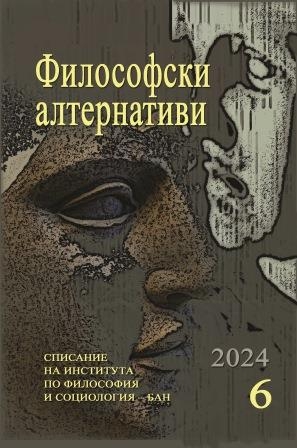Концепцията за критика на Мишел Фуко
Michel Foucault’s Concept of Critique
Author(s): Miroslava HristoskovaSubject(s): Philosophy, History of Philosophy, Philosophical Traditions, Ethics / Practical Philosophy, Early Modern Philosophy, Contemporary Philosophy, Ontology
Published by: Институт по философия и социология при БАН
Keywords: critique; ethos; Enlightenment; ontology; the present
Summary/Abstract: This paper examines Foucault’s concept of critique and points out the importance of critical attitude in his ontology of the present. Kant’s question of the Enlightenment is put in a new perspective: philosophical thought is oriented at defining the present and actual field of experience. Philosophy becomes an activity of diagnosing the present (ontology of actuality and ourselves) opposed to a search of universal structures of truth (analytics of truth). Foucault observes a relationship between Enlightenment and critique: a certain kind of attitude, a philosophical ethos that consists of critique of our historical existence. This critical attitude is understood as a philosophical ethos (critical work of thought over itself) and as a practice of freedom (a perspective of transforming oneself and creating new modalities of subjectivity).
Journal: Философски алтернативи
- Issue Year: XXXIII/2024
- Issue No: 6
- Page Range: 14-21
- Page Count: 8
- Language: Bulgarian
- Content File-PDF

